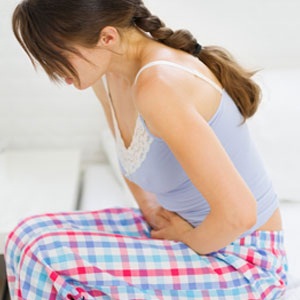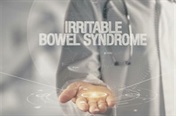
In the past, it was thought that irritable bowel syndrome (IBS) was a psychological or stress-related problem, but we now know that this isn’t true.
Although psychological or stress-related problems do exacerbate the symptoms of IBS, they’re not the sole cause.
To date, we still don’t know exactly what causes IBS but there are many theories:
A serotonergic problem
Serotonin is a compound that helps to move impulses from one nerve to the other. It’s present in abundance in the gastrointestinal (GI) system, where it’s involved in bowel movements. Two serotonergic drugs that have been developed had a reasonably good impact on IBS.
This is seen as proof that serotonin plays a significant role in the condition.
A genetic problem
IBS seems to run in families. A study carried out by the Mayo Clinic showed that people with IBS were three times as likely as people without the condition to have a relative who also had IBS.
Large studies with families and twins also showed that IBS does seem to run in families. Researchers looked at the genes involved with serotonin, but couldn’t link that to patients with IBS. This is, however, an exciting area for research.
An inflammatory condition
Today, we know that some inflammation is involved in IBS, indicating some immune dysregulation. The marker for this inflammation is the mast cell, and numerous mast cells are found in people with IBS, especially near the nerve endings.
Researchers are now working on developing medicines that stabilise these mast cells in an attempt to control the symptoms (as is done with asthma patients).
A full thickness biopsy of the colon and jejunum also show increased inflammatory lymphocytes in the colon. This gives weight to IBS having an inflammatory basis.
Bacterial overgrowth and altered gastrointestinal bowel flora
With the first breath that we take as newborn babies, bacteria enter and colonise our gut. Thus, our environment at that particular moment plays a crucial role in the nature of our gut flora. Unfortunately, we can’t always choose our environment at birth (for example, caesarean section vs. natural vaginal delivery).
Note that we get a lot of our gut flora from our mothers – also through breast milk.
Peristaltic (wave-like, propulsive) movements of the bowel are essential to maintain a healthy gut flora. In IBS, the motility (peristaltic movements) of the gut is disturbed, and many people with IBS have overgrowth of bacteria in the small bowel. This could be the origin of symptoms such as bloating, abdominal pain and diarrhoea.
Disturbances of the gut flora, e.g. taking antibiotics or following a low-fibre diet, can contribute to tummy problems such as diarrhoea. It was recently found that the amount of bacteria is important and that the type of bacteria involved in the overgrowth also plays a major role.
In people with an abundance of Veillonella (a type of bacteria found in the gut), higher levels of acetic acid, propionic acid and organic acids were also found. Those with high levels of the former two acids had more severe symptoms and impaired quality of life.
Research also suggests that our gut microbial system may play a crucial role in the development of IBS. Recolonisation of the gut with beneficial strains of healthy bacteria such as Bifidobacterium and the Lactobacillus species may improve IBS symptoms. However, there’s no consensus yet on the dosage as well as the long-term safety of chronic probiotic supplementation.
Visceral hypersensitivity
- Visceral hypersensitivity is when there’s an increased awareness and sensitivity of the gut. Research shows that people with IBS react more to pain because they’re more sensitive to:
- Distention (bloating)
- Dietary changes
- Psychological factors
Therefore, it appears that people with IBS may have a lower pain threshold. This could indeed be the case as research has shown that people with IBS have increased excitability of the spinal cord.
This was substantiated when a group of researchers inserted inflatable balloons into their study group’s colons. Participants with IBS felt, after repetitive balloon inflations, a progressive increase in pain intensity that occurred longer and to a greater degree than in people who didn’t have IBS.
Bio-psychosocial model
This model embraces an integrated understanding of functional gut disorders – it allows for symptoms to be explained by both physiological factors as well as sociocultural and psychosocial influences.
Early in a person’s life, both genetics (genes passed down from the mother and father) and environmental factors (family influences on illness expression, abuse, major losses or exposure to infections) may affect one’s psychosocial development. These factors, in turn, may determine how you deal with stressors in your life and what coping skills you employ.
Should you have no psychological difficulties and good coping skills, it’s unlikely that gut dysfunction will occur. However, if psychological difficulties coincide with poor coping skills, it can increase your susceptibility to gut dysfunction (abnormal motility, altered mucosal immunity or visceral hypersensitivity).
Therefore, IBS is described as the clinical product of the interaction of the psychosocial factors and altered gut physiology via the ‘brain-gut axis’.
Read more:
Risk factors of IBS
Reviewed by Kim Hofmann, registered dietitian, BSc Medical (Honours) Nutrition and Dietetics, BSc (Honours) Psychology. January 2018.




 Publications
Publications
 Partners
Partners












